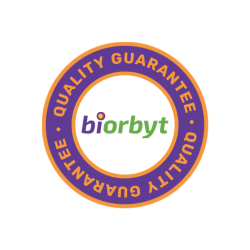You have no items in your shopping cart.
Cart summary

TGFBR1 Protein, Mouse, Recombinant (hFc)
Catalog Number: orb1961156
| Catalog Number | orb1961156 |
|---|---|
| Category | Proteins |
| Description | TGF-beta RI, also called ALK-5, is an approximately 55 kDa type I transmembrane serine/threonine receptor kinase. In the presence of TGF-beta, TGF-beta RI forms a complex with, and is phosphorylated by, TGF-beta RII. Phosphorylated TGF-beta RI can then transiently bind and phosphorylate Smad2 and Smad3. TGF-beta functions as a tumor suppressor by inhibiting the cell cycle in the G1 phase. Administration of TGF-beta is able to protect against mammary tumor development in transgenic mouse models in vivo. Disruption of the TGF-beta/SMAD pathway has been implicated in a variety of human cancers, with the majority of colon and gastric cancers being caused by an inactivating mutation of TGF-beta RII. TGF-beta RI is likely important during development, since mice deficient for TGF-beta RI die at midgestation with severe defects in vascular development of the yolk sac and placenta, and an absence of circulating red blood cells. Furthermore, TGF-beta RI appears to be involved in proper lymphatic network development. |
| Tag | C-hFc |
| Purity | 98.00% |
| Protein Sequence | Leu30-Glu125 |
| UniProt ID | Q64729 |
| MW | 40-60 KDa (reducing condition) |
| Application notes | Reconstitute the lyophilized protein in distilled water. The product concentration should not be less than 100 μg/ml. Before opening, centrifuge the tube to collect powder at the bottom. After adding the reconstitution buffer, avoid vortexing or pipetting for mixing. |
| Expression System | HEK293 Cells |
| Biological Origin | Mouse |
| Biological Activity | TGF-beta RI, also called ALK-5, is an approximately 55 kDa type I transmembrane serine/threonine receptor kinase. In the presence of TGF-beta, TGF-beta RI forms a complex with, and is phosphorylated by, TGF-beta RII. Phosphorylated TGF-beta RI can then transiently bind and phosphorylate Smad2 and Smad3. TGF-beta functions as a tumor suppressor by inhibiting the cell cycle in the G1 phase. Administration of TGF-beta is able to protect against mammary tumor development in transgenic mouse models in vivo. Disruption of the TGF-beta/SMAD pathway has been implicated in a variety of human cancers, with the majority of colon and gastric cancers being caused by an inactivating mutation of TGF-beta RII. TGF-beta RI is likely important during development, since mice deficient for TGF-beta RI die at midgestation with severe defects in vascular development of the yolk sac and placenta, and an absence of circulating red blood cells. Furthermore, TGF-beta RI appears to be involved in proper lymphatic network development. |
| Expression Region | Leu30-Glu125 |
| Storage | -20°C |
| Note | For research use only |


